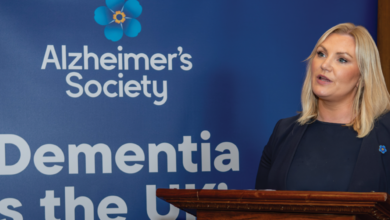TYC: privatising your Health Service
 NIPSA Deputy General Secretary Alison Millar sets out its critique of Transforming Your Care and calls on MLAs to end the relationship between the Health Service and private sector providers.
NIPSA Deputy General Secretary Alison Millar sets out its critique of Transforming Your Care and calls on MLAs to end the relationship between the Health Service and private sector providers.
Transforming your Care (TYC) arrived in 2011 proclaiming a healthcare vision that would “put the patient first” and promising money to make the shift to “transformed” care easier. Since then, with regularly reported crises and forecast “transitional” monies undelivered, this rhetoric is looking increasingly hollow. Indeed when the gap between the spin and reality of TYC is exposed, the public fall-out is dramatic.
This was shown in May 2013 with the threatened closure of statutory (public sector) residential care homes for the elderly. What this debacle most clearly revealed was that, where feasible, TYC makes the withdrawal of public sector provision the default position with the policy stating “there would need to be clear and specific reasons for the statutory sector to remain in this field”.
This means that under TYC admissions to such homes are limited and, as soon as possible, the homes’ deliberately reduced population is defined as “unsustainable”. For PR reasons, the public sector homes may not close immediately but they will not “outlive” the last residents in them for long. Simultaneously both admissions to private sector homes and funding of this sector (£53 million in 2012-2013 alone) are on the rise. Where need exists, therefore, TYC wants it to be met by privatisation.
Such an approach is not limited to this sector. In domiciliary care, the private sector is also an increasingly dominant player, benefitting from the revenue streams created by TYC’s fragmentation of service. As a consequence, we see revised criteria diminishing the importance of social care needs and patient dignity undermined by the enforcement of punitively time-limited homecare visits.
This leaves Northern Ireland as the UK region with the highest number of home care visits lasting less than 30 minutes. Worse still, the health trusts suggest this time could be reduced to eight minutes. In addition, while TYC idealises “care in the home”, the “personalisation” agenda is not about “empowerment”. It is a phased withdrawal from universal provision – the antithesis of holistic healthcare. It also introduces the ethical minefield of “cash for care” into already difficult family circumstances.
In the last three years, the Belfast trust has paid out £130 million to the private sector as it and all other trusts admit to using this sector to meet ministerial waiting time targets. The worse the situation in the NHS gets, the more companies that thrive on the NHS not meeting its targets profit. This creates a situation where consultants on NHS contracts who also work for such companies can cancel their NHS appointments (thus lengthening waiting lists) while making themselves available to do this work privately.
So health policy surrenders supply to those who profit from the limitation of supply. Is it any wonder a surgeon is six times more likely to cancel an appointment if they are working for us directly, rather than doing this work ‘for the NHS’ in a private capacity? What part of conflict of interest does the Health Minister not get?
We predicted what would happen elsewhere in the system if A&Es closed completely or restricted their opening hours, what the consequences of a 20 per cent cut in hospital beds over the last five years would be, and have consistently highlighted the destructive effect staff shortages are having.
While any major policy change takes time to work, it is clear that far from TYC’s core changes advertising its merits, they are indictments of it. This is because, behind its visionary rhetoric, it is rooted in cuts and privatisation. The “major incident” at the RVH and the necessity of three “escalation” plans being put in place at A&E departments in the first nine weeks of 2014 point to the strategic failure of current health policy.
This is also a political failure, raising huge questions about the lack of accountability and scrutiny at Stormont that has allowed matters to drift to this crisis point. We accept a need for “transformed” modernised care but it must be built on a progressive foundation.
It requires truly representative and democratic participation in the planning and decision-making processes within health and social care. It must not depart from the NHS’ founding principles and must end tax-payers’ debilitating subsidy of the private sector, the demands of which are indulged – PFI debt, NHS patients sent to private clinics to be treated by ‘NHS’ staff etc. – before our healthcare needs are met.
In 2013, a majority in the Assembly voted against privatisation of the Health Service so MLAs have two choices: let them now honour their motion or come clean and tell voters in all of their future manifestos that they wish to privatise the NHS.
The Northern Ireland Public Service Alliance represents around 14,000 administrative, care and support staff working in the health and social care. The union’s policy and research report on TYC is available at www.nipsa.org.uk






